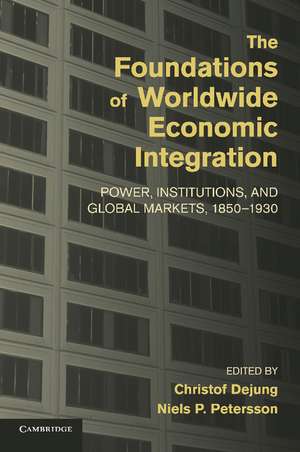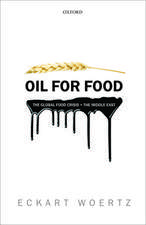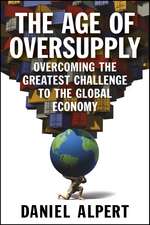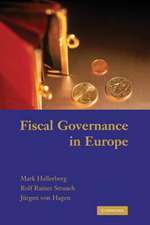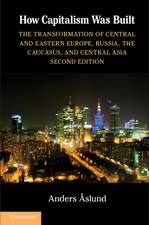The Foundations of Worldwide Economic Integration: Power, Institutions, and Global Markets, 1850–1930: Cambridge Studies in the Emergence of Global Enterprise
Editat de Christof Dejung, Niels P. Peterssonen Limba Engleză Paperback – 20 aug 2014
| Toate formatele și edițiile | Preț | Express |
|---|---|---|
| Paperback (1) | 237.93 lei 6-8 săpt. | |
| Cambridge University Press – 20 aug 2014 | 237.93 lei 6-8 săpt. | |
| Hardback (1) | 694.91 lei 6-8 săpt. | |
| Cambridge University Press – 6 ian 2013 | 694.91 lei 6-8 săpt. |
Preț: 237.93 lei
Nou
Puncte Express: 357
Preț estimativ în valută:
45.53€ • 47.66$ • 37.89£
45.53€ • 47.66$ • 37.89£
Carte tipărită la comandă
Livrare economică 01-15 aprilie
Preluare comenzi: 021 569.72.76
Specificații
ISBN-13: 9781107436978
ISBN-10: 1107436974
Pagini: 296
Ilustrații: 6 b/w illus. 10 tables
Dimensiuni: 152 x 229 x 17 mm
Greutate: 0.44 kg
Editura: Cambridge University Press
Colecția Cambridge University Press
Seria Cambridge Studies in the Emergence of Global Enterprise
Locul publicării:New York, United States
ISBN-10: 1107436974
Pagini: 296
Ilustrații: 6 b/w illus. 10 tables
Dimensiuni: 152 x 229 x 17 mm
Greutate: 0.44 kg
Editura: Cambridge University Press
Colecția Cambridge University Press
Seria Cambridge Studies in the Emergence of Global Enterprise
Locul publicării:New York, United States
Cuprins
Preface Harold James; Introduction: power, institutions, and global markets - actors, mechanisms, and foundations of worldwide economic integration, 1850–1930 Christof Dejung and Niels P. Petersson; Part I. Legal Institutions and Private Actors: 1. Legal institutions and the world economy, 1900–30; 2. Against globalisation: sovereignty, courts, and the failure to coordinate international bankruptcies (1870–1940) Jérôme Sgard; 3. Credit information, institutions, and international trade: the UK, US, and Germany, 1850–1930 Rowena Olegario; Part II. Colonial Markets and Non-Western Actors: 4. The London Stock Exchange and the colonial market: a study of internationalisation and power Bernard Attard; 5. The London gold market, 1900–31 Bernd-Stefan Grewe; 6. The boundaries of Western power: the colonial cotton economy in India and the problem of quality Christof Dejung; 7. The colonised as global traders: Indian trading networks in the world economy, 1850–1939 Claude Markovits; 8. The international patent system and the global flow of technologies: the case of Japan, 1880–1930 Pierre-Yves Donzé; Part III. World War I and the Consequences for Economic Globalisation: 9. Transnational cooperation in wartime: the international protection of intellectual property rights during the First World War Isabella Löhr; 10. The resilience of globalisation during the First World War: the case of Bunge and Born in Argentina Philip Dehne; 11. Global economic governance and the private sector: the League of Nations' experiment in the 1920s Michele d'Alessandro.
Recenzii
'It has become commonplace to argue that institutions and rules matter greatly to economic performance. But how did these institutions and rules emerge and take the particular shapes that they did? Christof Dejung and Niels P. Petersson's significant collection takes a sustained look at global trade in the late nineteenth and early twentieth centuries and shows how European merchants, Indian peasants, imperial statesmen, and others, constructed these institutions and rules. Far from a definite set of tools, the institutions that enabled global trade were the outcome of sustained social contestation on local marketplaces, in national politics, and across ocean-spanning trade networks. Power is back to the debate on institutions - and this book is a must-read for anyone interested in this important story.' Sven Beckert, Harvard University
'When you thought that everything had been said about the 'first' globalization, here is a fascinating book shedding new light on its periodization, especially its persistence in the twenties, the importance of norms and institutions, and the complex relationships between its actors, both public and private, national and transnational, rulers and ruled. A timely reminder of the crucial role of power in the shaping of the global economy.' Youssef Cassis, European University Institute
'This volume provides a challenge to modern historians. It questions the periodization of the 'long tenth century' ending in 1914. It argues that globalization created international institutions, norms, and relations that survived the First World War. By looking at the level of actors, businessmen who shaped international networks, and institutions, the volume challenges wisdom long established by political and economic historians. A must-read for everybody who takes history seriously.' Harm G. Schröter, President, European Business History Association
'When you thought that everything had been said about the 'first' globalization, here is a fascinating book shedding new light on its periodization, especially its persistence in the twenties, the importance of norms and institutions, and the complex relationships between its actors, both public and private, national and transnational, rulers and ruled. A timely reminder of the crucial role of power in the shaping of the global economy.' Youssef Cassis, European University Institute
'This volume provides a challenge to modern historians. It questions the periodization of the 'long tenth century' ending in 1914. It argues that globalization created international institutions, norms, and relations that survived the First World War. By looking at the level of actors, businessmen who shaped international networks, and institutions, the volume challenges wisdom long established by political and economic historians. A must-read for everybody who takes history seriously.' Harm G. Schröter, President, European Business History Association
Descriere
Discusses worldwide economic integration between 1850 and 1930, challenging the popular description of the period after 1918 as one of deglobalisation.
